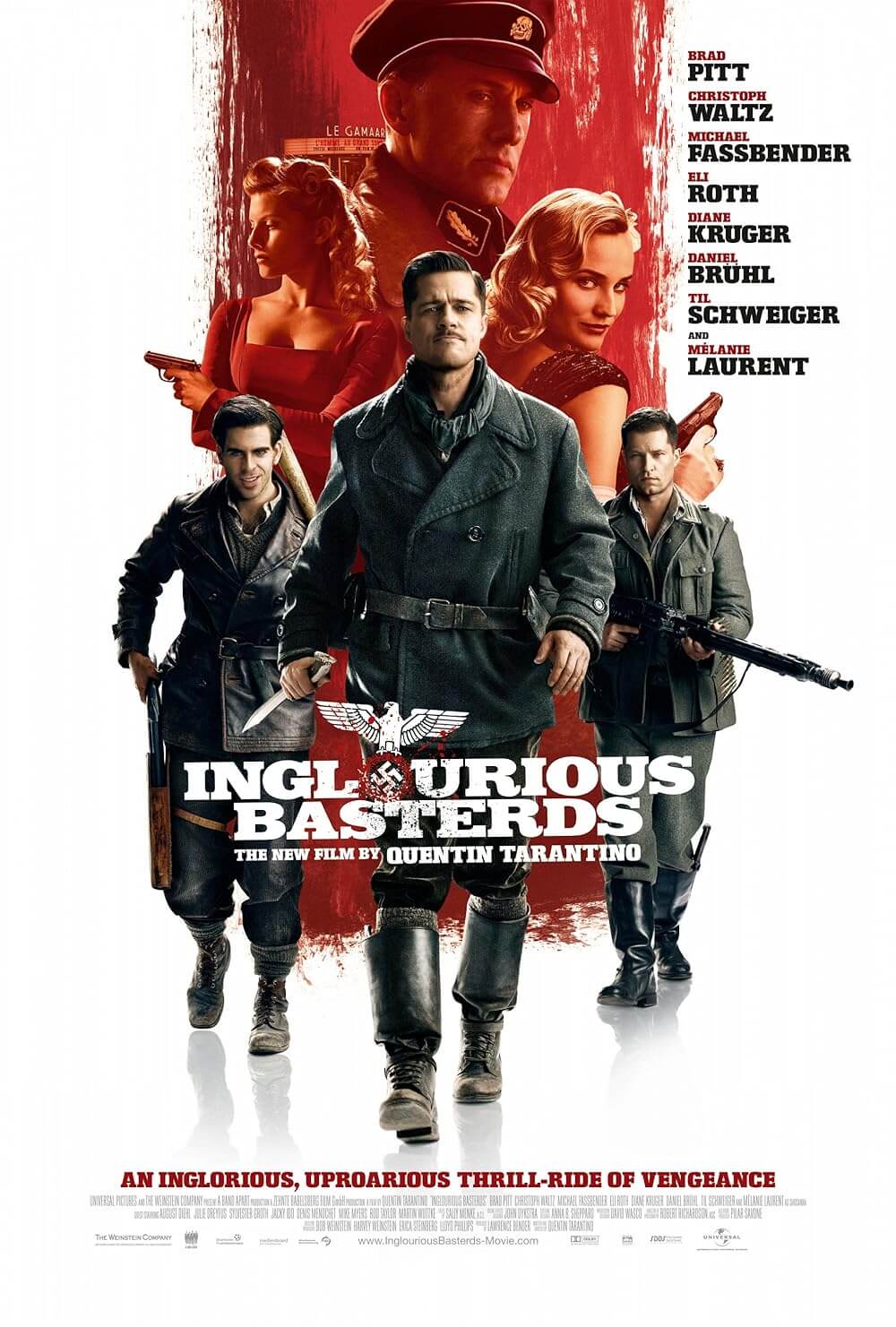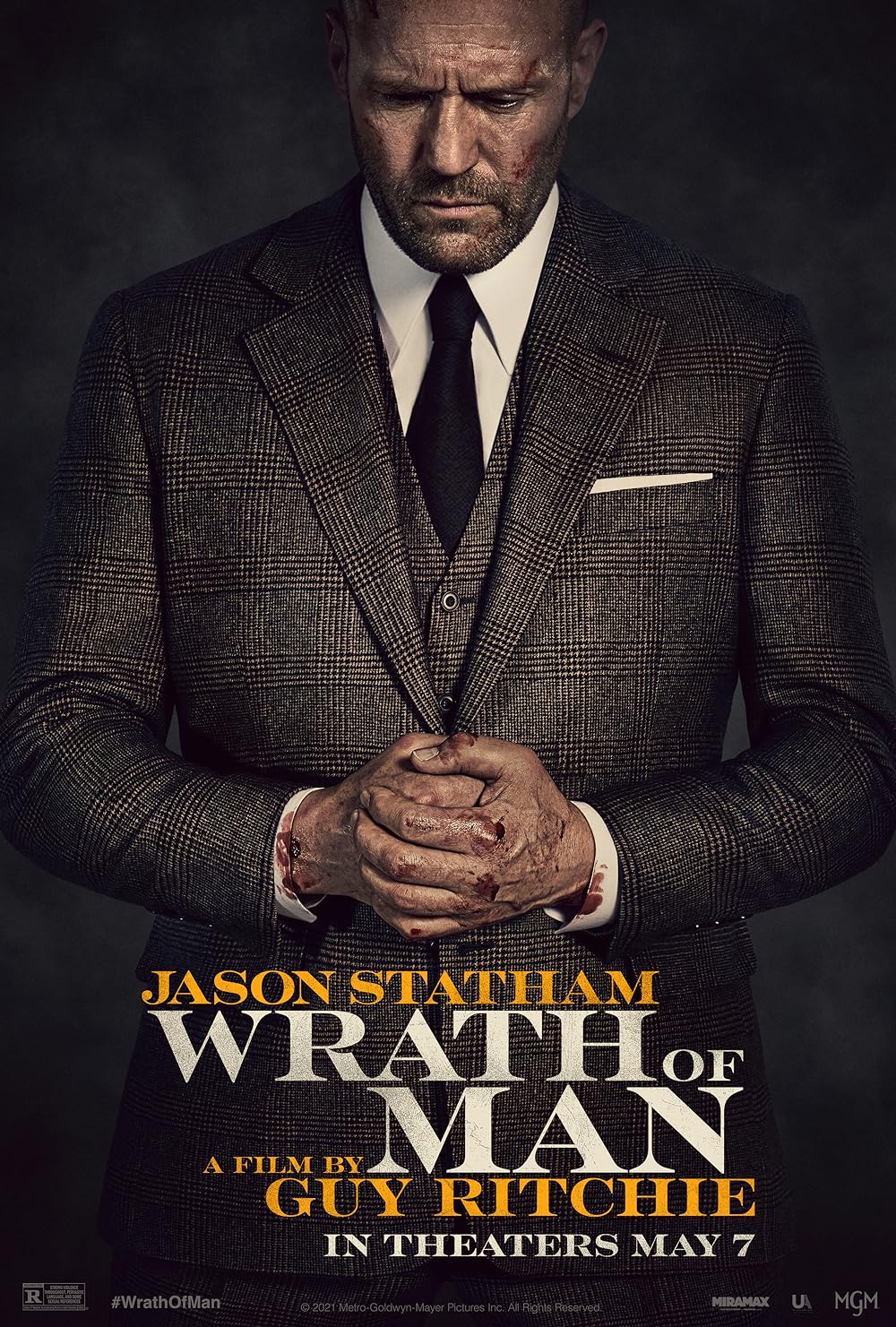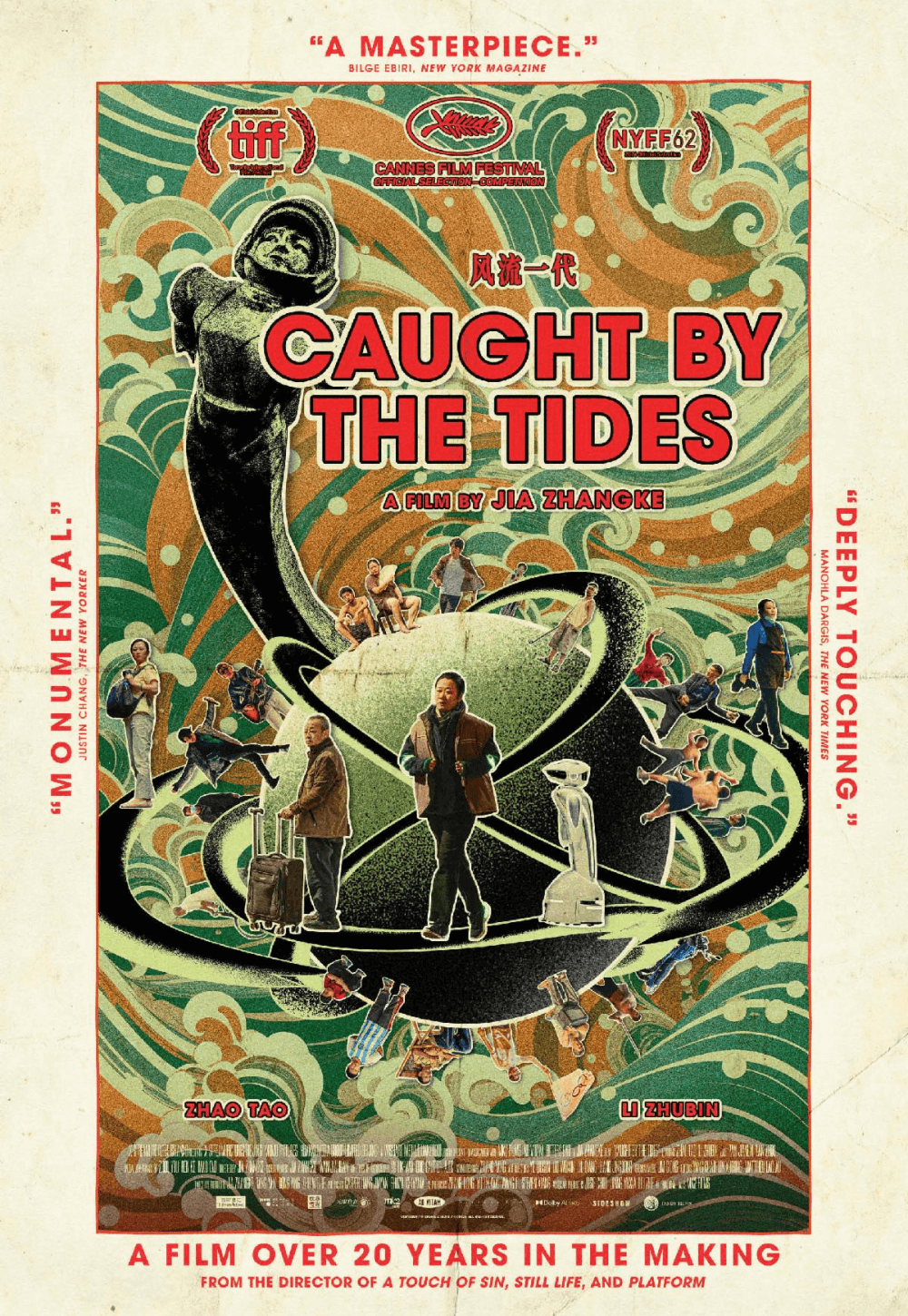
The Ministry of Ungentlemanly Warfare
By Brian Eggert |
Guy Ritchie continues his recent streak of mid-budget fare with The Ministry of Ungentlemanly Warfare, a rollicking wartime actioner inspired by clandestine missions overseen by Winston Churchill in the early part of the Second World War. The British director has been on a roll lately, putting his various franchises—Sherlock Holmes, King Arthur, Disney’s Aladdin (2019)—behind him in favor of less blockbustery projects. And he’s been prolific in that mode. Whereas most directors helm a feature every few years, Ritchie has made six in as many years, most solid efforts. For his latest, Ritchie and his co-writers (Paul Tamasy, Eric Johnson, Arash Amel) based their pulpy shoot-’em-up on the 2014 book by Damien Lewis, Churchill’s Secret Warriors: The Explosive True Story of the Special Forces Desperadoes of WWII. The result plays like a familiar brand of war movie, where a ragtag bunch of scoundrels assemble for an impossible mission to stop Nazis. The movie doesn’t break the mold, but its charming cast and punchy energy supply the viewer with the timeless draw of watching Nazis receive their due retribution, which never loses its appeal.
Ritchie, who got his start in the late 1990s making crime movies in the style of Quentin Tarantino, such as Lock, Stock and Two Smoking Barrels (1998) and Snatch (2000), returns to the Tarantino well with his latest. Instead of adhering to the basis of the real story, the 1942 mission designated Operation Postmaster, the director borrows liberally from the scenario and aesthetic of Inglourious Basterds (2009), sometimes to distracting degrees. Christopher Benstead’s score adopts an Ennio Morricone sound reminiscent of the composer’s Spaghetti Western music in Tarantino’s film. The subtitles have a similar 1970s font rendered in yellow text, as seen in much of Tarantino’s work. Yet, despite these and other replicated details—even the poster design looks similar—Ritchie avoids turning The Ministry of Ungentlemanly Warfare into a pure rehash. Even so, imitation alone isn’t enough to discredit a movie, and Ritchie does plenty to keep the material lively and diverting, even if it sometimes feels like a less inspired version of Inglourious Basterds.
After a conspicuous exposition dump that forces us to question why British military leaders must get their intel from celluloid newsreels, the movie leaps into action as the resident “M” (Cary Elwes) and 007 creator Ian Fleming (Freddie Fox) enlist the help of troublemaker Gus March-Phillipps (Henry Cavill) to stop the threat of German U-boats. Working in secret to avoid getting Churchill (Rory Kinnear, unrecognizable beneath unconvincing prosthetics) in trouble with Parliament, Gus and his hand-picked gang of commandos set out to destroy U-boat supplies that will prevent the Americans from crossing the Atlantic and helping the Allies. Their mission requires them to take a fishing boat to Fernando Po, a Spanish island off the coast of Nigeria, where the Nazis have stashed a transport loaded with U-boat supplies. Gus’ mission, which he chooses to accept: blow up the U-boat armaments so the Nazi submarines no longer represent a threat in the Atlantic.
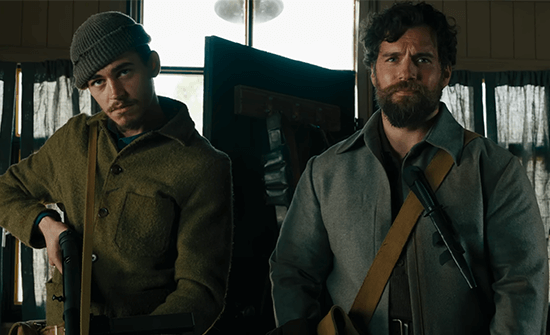 Cavill is memorable as the cheeky Gus. The actor’s magnetic screen presence has been wasted on dour DCEU superhero movies in recent years, but Ritchie seems to know how to use the performer’s talents (see 2015’s underrated The Man from U.N.C.L.E. for proof). Here, he’s a hulking madman with a penchant for stealing freebies such as cigars and jackets, but there’s not much to the character than a glib Nazi killer who doesn’t play by the rules. That’s enough, I suppose. Gus also serves as the resident Danny Ocean, albeit under an ostentatious beard and curled mustache. Ruffling the feathers of British army leaders, he enlists a number of his “bad” cohorts with unconventional methods, each with familiar designations such as the planner (Alex Pettyfer), the sailor (Hero Fiennes Tiffin), the demolition expert (Henry Golding), the fixer (Babs Olusanmokun), the Mata Hari (Eiza González), and the Danish Hammer (Alan Ritchson). Most of the personalities on display prove one note, leaving the actors to imbue their roles with more than the screenplay provides, Ritchson and González in particular.
Cavill is memorable as the cheeky Gus. The actor’s magnetic screen presence has been wasted on dour DCEU superhero movies in recent years, but Ritchie seems to know how to use the performer’s talents (see 2015’s underrated The Man from U.N.C.L.E. for proof). Here, he’s a hulking madman with a penchant for stealing freebies such as cigars and jackets, but there’s not much to the character than a glib Nazi killer who doesn’t play by the rules. That’s enough, I suppose. Gus also serves as the resident Danny Ocean, albeit under an ostentatious beard and curled mustache. Ruffling the feathers of British army leaders, he enlists a number of his “bad” cohorts with unconventional methods, each with familiar designations such as the planner (Alex Pettyfer), the sailor (Hero Fiennes Tiffin), the demolition expert (Henry Golding), the fixer (Babs Olusanmokun), the Mata Hari (Eiza González), and the Danish Hammer (Alan Ritchson). Most of the personalities on display prove one note, leaving the actors to imbue their roles with more than the screenplay provides, Ritchson and González in particular.
“Remember, gentlemen, try to have fun,” says Gus to his compatriots, as they launch an attack on a Nazi base, mowing them down with silenced machine guns and, in Ritchson’s case, a bow and arrow. It’s good advice for the viewer, too, since a close examination of the movie may expose a few ungainly details. For example, when Gus remarks that “stealth mode’s over,” using an anachronistic term, it sounds like Gus has been playing modern video games. It’s best to relax into the movie’s simple charms, reminiscent of The Guns of Navarone (1961), The Dirty Dozen (1967), The Devil’s Brigade (1968), and Kelly’s Heroes (1970), or dozens of others like them. To be sure, Ritchie’s movie boasts a few entertaining set pieces, including a costume party, some subterfuge involving González seducing a Nazi (Til Schweiger, from Inglourious Basterds, no less), and an explosion-heavy denouement. Although, the climactic sequence feels chaotic and haphazardly edited by James Herbert.
What works about The Ministry of Ungentlemanly Warfare is that the skilled cast appears to be having fun, while Ritchie is unapologetically delighted when his characters kill Nazis. It’s a crowd-pleaser in that sense: the fascists get shot, stabbed, and blown up; the heroes complete their mission without a depressing number of losses; the British government gains an advantage in the war effort; the action is competent enough; the actors look good in their roles. I enjoyed watching it, even if I had quibbles. Granted, a more historically inclined picture might have been preferable, to which I say read the book. And yes, Ritchie’s execution owes a debt to Inglourious Basterds, to which I say Tarantino’s film also had antecedents. When it’s over, I found it difficult to argue against this diverting, breezy chunk of entertainment, even if I wouldn’t rank it among Ritchie’s best.
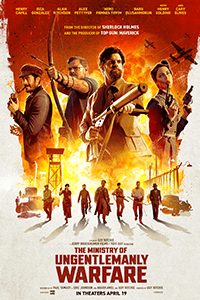
Consider Supporting Deep Focus Review
I hope you’re enjoying the independent film criticism on Deep Focus Review. Whether you’re a regular reader or just occasionally stop by, please consider supporting Deep Focus Review on Patreon or making a donation. Since 2007, my critical analysis and in-depth reviews have been free from outside influence. Becoming a Patron gives you access to exclusive reviews and essays before anyone else, and you’ll also be a member of a vibrant community of movie lovers. Plus, your contributions help me maintain the site, access research materials, and ensure Deep Focus Review keeps going strong.
If you enjoy my work, please consider joining me on Patreon or showing your support in other ways.
Thank you for your readership!
Brian Eggert | Critic, Founder
Deep Focus Review


